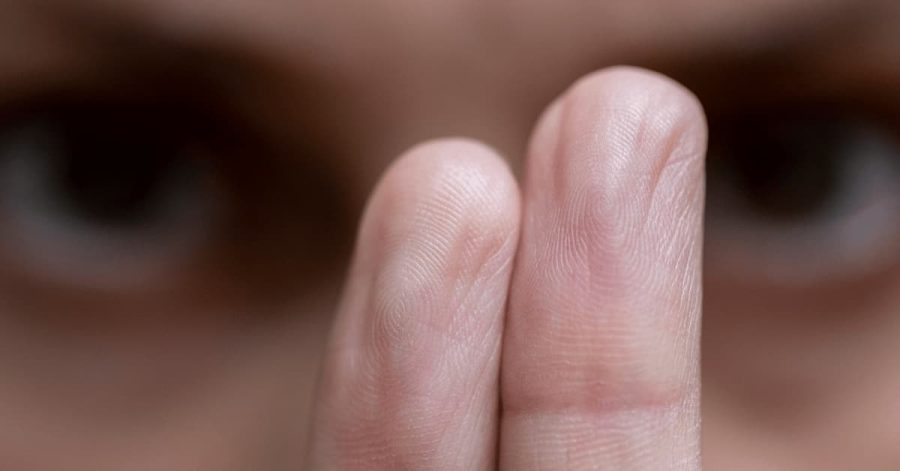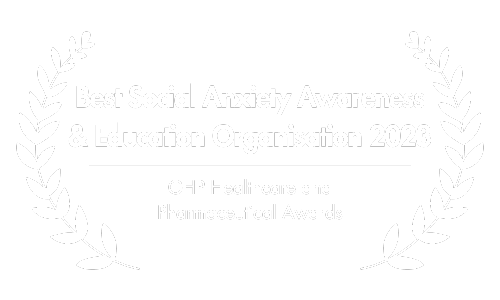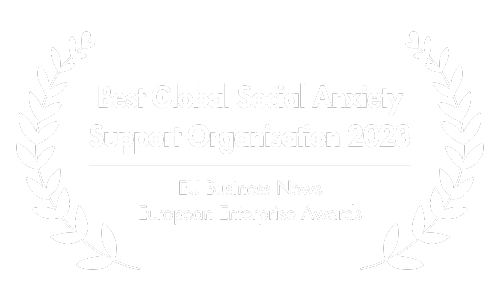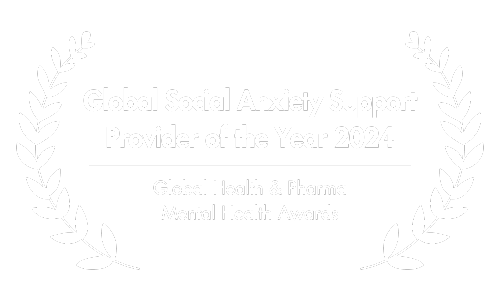EMDR for Social Anxiety: A Game-Changing Therapy Approach
This article contains a recommendation for an online therapy provider that offers EMDR for social anxiety. If you purchase therapy services through this link, you will receive a significant discount and we will receive a commission.
Social Anxiety Disorder (SAD) casts a long shadow over the lives of countless individuals across the globe, masquerading as mere shyness or introversion.

This condition goes far beyond the common jitters associated with public speaking or stepping into a crowded room; it represents a profound, persistent dread of scrutiny and the possibility of unfavorable judgment from others (American Psychiatric Association, 2013).
For those entangled in its grip, everyday interactions aren’t just challenging—they can feel insurmountable, colored by a fear that is both relentless and deeply personal.
Understanding and addressing this pervasive disorder requires more than traditional therapy methods alone can offer.

Enter Eye Movement Desensitization and Reprocessing (EMDR), a therapeutic approach initially developed for trauma recovery, now offering hope for individuals battling social anxiety.
This article aims to peel back the layers of EMDR therapy, revealing its potential as a transformative tool for those seeking to reclaim their lives from the clutches of social phobia.

A. What is EMDR?
Eye Movement Desensitization and Reprocessing (EMDR) is a psychotherapy treatment originally designed to alleviate the distress associated with traumatic memories.
Developed by Dr. Francine Shapiro in the late 1980s, EMDR has gained recognition not only for its effectiveness in treating Post-Traumatic Stress Disorder (PTSD) but also for its applicability to a wide range of psychological issues, including SAD.
The core of EMDR therapy revolves around its unique approach to processing distressing memories.

The process is structured into eight phases, focusing on past memories, present disturbances, and future actions.
During the pivotal phase of treatment, the patient is asked to focus on a traumatic or triggering memory and simultaneously engage in bilateral stimulation.
This stimulation typically involves following the therapist’s fingers with their eyes as they move back and forth across the patient’s field of vision. Other forms of bilateral stimulation may include auditory tones or taps.

The theoretical foundation of EMDR suggests that the bilateral stimulation helps “unfreeze” the brain’s information processing system, which is believed to be interrupted in times of extreme stress or trauma.
By reactivating this natural healing process, EMDR aids in transforming the emotional charge of distressing memories into a more neutral or even positive state.
Despite its somewhat unconventional methods, EMDR has been extensively researched and endorsed by numerous mental health organizations worldwide.
Its effectiveness, coupled with the typically rapid results it delivers, has made it a popular choice among therapists and patients alike.

For individuals with social anxiety, EMDR offers a promising avenue for treatment.
The therapy’s focus on reprocessing distressing memories, such as humiliating or embarrassing social experiences, aims to reduce the anxiety associated with these memories and improve the individual’s overall functioning and quality of life.
B. EMDR for Social Anxiety: Research Findings
The exploration of EMDR’s effectiveness in treating SAD and related conditions such as public speaking anxiety has been the subject of numerous studies and case reports.
These investigations offer insights into how EMDR therapy can be applied beyond its initial scope of treating PTSD, showcasing its versatility as a treatment method for various forms of anxiety.

Here, we delve into selected research findings and case reports to highlight EMDR’s potential benefits for individuals with social anxiety.
Study 1
Sagaltici & Demirci (2019) provided a compelling case report documenting the successful application of EMDR in treating a 29-year-old male with longstanding SAD, who had not found relief through pharmacotherapy and cognitive behavioral therapy.
Through therapeutic sessions, the patient was guided to revisit and reprocess distressing memories linked to his anxiety.
Engaging in bilateral sensory input under the therapist’s facilitation, this process was designed to desensitize him to the underlying distress of these memories and reshape his perceptions, ultimately diminishing their influence on his current emotional state.

Significant improvements were noted in the patient’s symptoms, as measured by the Liebowitz Social Anxiety Scale (LSAS), Beck Depression Scale (BDS), and Beck Anxiety Scale (BAS).
This case underscores EMDR’s capacity as a supplementary treatment for SAD, demonstrating substantial symptom reduction and enhanced well-being.
Study 2
Foley & Spates (1995) focused on the relevance of EMDR for public speaking anxiety, a common manifestation of social anxiety.
Traditionally, eye movements are considered a cornerstone of EMDR, believed to facilitate the processing of distressing memories by creating a bilateral stimulation.

However, the researchers explored standard EMDR therapy with its characteristic eye movements against alternative procedures that did not utilize eye movements, including methods that involved focusing on other stimuli or no additional stimuli at all.
Remarkably, the findings showed that EMDR was equally effective across these varied approaches, suggesting that the therapeutic benefits of EMDR in reducing public speaking anxiety were not solely dependent on the eye movement component.
This research contributes to understanding EMDR’s applicability in addressing social anxiety, specifically the fear of public speaking.

Study 3
Aslani, Miratashi, & Aslani (2014) examined EMDR therapy’s impact on public speaking anxiety among university students.
The results were notably promising. Participants in the study experienced a significant reduction in the physiological symptoms often triggered by speech anxiety, such as increased heart rate, sweating, and trembling.
Moreover, the therapy sessions led to a marked increase in the students’ confidence levels.

This boost in self-assurance was not only evident in their ability to engage more freely in public speaking scenarios but also in their overall demeanor and approach to communication challenges.
By directly addressing the root causes of anxiety and facilitating the reprocessing of traumatic or distressing experiences associated with public speaking, EMDR therapy offers a pathway to not just manage but potentially overcome the fear of public speaking.
Study 4
Sun & Chiu (2006) reported a case where mindfulness meditation training, combined with EMDR, led to significant reductions in social anxiety symptoms.
The results were significant, showing considerable reductions in social phobia symptoms, alongside notable improvements in anxiety and depression scores.

The study illuminates the potential benefits of integrating EMDR with mindfulness meditation for treating social phobia, offering a holistic approach to managing anxiety.
Together, these studies and case reports paint a promising picture of EMDR’s role in managing social anxiety and related conditions.
They not only attest to EMDR’s effectiveness but also its potential to transform lives by mitigating the debilitating effects of social anxiety.

C. Benefits of EMDR for Social Anxiety
EMDR therapy presents a wide array of benefits for individuals facing social anxiety, encompassing more than just alleviation of symptoms.
The studies highlighted above reveal several key benefits of EMDR therapy for social anxiety, including:
- Symptom Reduction: EMDR significantly lowers social anxiety symptoms, decreasing anxiety, depression, and social avoidance, making everyday interactions more manageable.
- Increased Confidence: The therapy boosts confidence, particularly beneficial for public speaking anxiety, by reprocessing negative past experiences and fostering a positive self-view.
- Emotional Resilience: EMDR enhances emotional resilience, aiding individuals in processing distressing memories and better managing anxiety-provoking situations.
- Enhanced Well-being: Beyond symptom relief, EMDR contributes to overall well-being, empowering individuals to feel more in control and engaged in life.
- Rapid Results: Offering quicker outcomes compared to some other therapies, EMDR appeals to those seeking prompt relief from social anxiety symptoms.
In essence, EMDR therapy offers a multifaceted approach to treating social anxiety, addressing not just the symptoms but also fostering long-term resilience and well-being.

D. Considerations Before Starting EMDR
Choosing to embark on EMDR therapy is a significant step toward managing social anxiety.
However, it’s essential to consider several factors to ensure that this therapeutic approach aligns with your needs and circumstances.
Here are key considerations to keep in mind before starting EMDR therapy for social anxiety:
Assessment of Suitability
Not everyone with social anxiety will find EMDR to be the most suitable treatment option.
A thorough assessment by a qualified mental health professional is crucial to determine if EMDR is appropriate for your specific situation, taking into account factors such as the nature and severity of your social anxiety, any comorbid conditions, and your overall readiness for therapy.

Finding a Qualified EMDR Therapist
The effectiveness of EMDR greatly depends on the skill and experience of the therapist. Ensure that your therapist is properly trained and certified in EMDR.
They should also have experience treating social anxiety disorder to tailor the therapy effectively to your needs.
Further below, we provide some guidelines that will help you with your search.
Emotional Readiness
EMDR therapy involves recalling and processing distressing memories, which can be emotionally challenging.
It’s important to assess your readiness to confront these memories and deal with the emotional responses that may arise during therapy.

Commitment to the Process
EMDR therapy requires active participation and commitment to the process, including completing tasks or exercises between sessions.
Being prepared to engage fully with the therapy will enhance its effectiveness.
Managing Expectations
While EMDR can produce significant improvements, it’s important to have realistic expectations regarding the therapy’s outcomes.
Results from EMDR therapy can differ widely among individuals, with some noticing rapid improvements and others taking longer to see changes.

It’s also important to acknowledge that not every therapy suits everyone. For those who find EMDR isn’t the right fit, numerous alternative treatments are available.
Cost and Accessibility
When considering EMDR therapy for social anxiety, it’s crucial to factor in the practical aspects, such as the therapy’s cost and its availability in various parts of the world.
Accessibility to EMDR therapy can vary significantly from one country to another, and even within regions. In some areas, EMDR therapists might offer sliding scale fees or payment plans to make the therapy more affordable and accessible to a broader audience.
Consultation with a local mental health professional can provide further insights, offering guidance tailored to your specific context.

E. How to Find an EMDR Therapist
Starting EMDR therapy is a significant step towards overcoming social anxiety. To simplify your search for a qualified EMDR therapist, follow this brief guide:
- Certification and Training: Ensure your therapist is certified in EMDR, with the EMDR International Association (EMDRIA) being a reliable resource for finding certified professionals.
- Experience with Social Anxiety: Choose a therapist experienced in treating social anxiety, as they’ll better understand your specific needs.
- Consultation: Engage in an initial consultation to discuss their approach, experience, and what you can expect, ensuring you feel comfortable with their style.
- Insurance and Costs: Discuss session costs and insurance options. Many therapists offer sliding scale fees for affordability.
- Accessibility: Consider telehealth options if you have trouble locating a qualified therapist near you. Many therapists offer remote sessions.
- Recommendations and Networks: Seek personal recommendations or ask therapists for referrals if they’re not the right fit.

Choosing the right therapist is crucial in navigating the path to managing social anxiety. With the proper support, you can face social anxiety with increased confidence and optimism.
BetterHelp is a major online therapy platform that offers EMDR therapy for social anxiety. You may consider it as an option if you are open to receiving online sessions.
By using our link to sign up for BetterHelp, you’ll receive a 50% discount on your first month of therapy, making it a more accessible option for starting your journey towards healing.

F. Conclusion
Choosing to pursue EMDR therapy marks a courageous step towards confronting and overcoming the challenges posed by SAD.
Through the lens of research, case studies, and practical considerations outlined in this article, it’s clear that EMDR holds substantial promise for those seeking relief from the often debilitating effects of social anxiety.
While the process can be intense, given its focus on reprocessing distressing memories, the potential rewards—reduced symptoms, enhanced confidence, and a renewed sense of emotional freedom—are profound.

EMDR’s efficacy, as highlighted by the research and case reports discussed, underscores EMDR’s value as a versatile and impactful therapeutic tool.
The path to recovery may have its challenges, but the destination—a life less encumbered by social anxiety—is well worth the journey.

American Psychiatric Association. (2013). Diagnostic and statistical manual of mental disorders (5th ed.). Washington, DC: Author.
Aslani J . Effectiveness of Eye Movement Desensitization and Reprocessing Therapy on Public Speaking Anxiety of University Students. Zahedan J Res Med Sci. 2014;16(10(suppl))
Foley, T., & Spates, C. R. (1995). Eye movement desensitization of public-speaking anxiety: a partial dismantling. Journal of behavior therapy and experimental psychiatry, 26(4), 321–329. https://doi.org/10.1016/0005-7916(95)00048-8
Sagaltici, E., & Demirci, O. O. (2019). Eye Movement Desensitization and Reprocessing (EMDR) Treatment in Social Anxiety Disorder: A Case Report. Psychiatria Danubina, 31(3), 358–359. https://doi.org/10.24869/psyd.2019.358
Shapiro F. (1989). Eye movement desensitization: a new treatment for post-traumatic stress disorder. Journal of behavior therapy and experimental psychiatry, 20(3), 211–217. https://doi.org/10.1016/0005-7916(89)90025-6
Sun, T.-F., & Chiu N.-M. (2006, September). Synergism between mindfulness meditation training, and eye movement desensitization and reprocessing in psychotherapy of social phobia. Chang Gung Medical Journal, 29(4), 1-4

About the Author: Martin Stork
Martin is a professional psychologist with a background in physical therapy. He has organized and led various support groups for people with social anxiety in Washington, DC and Buenos Aires, Argentina. He is the founder of Conquer Social Anxiety Ltd, where he operates as a writer, therapist and director. You can click here to find out more about Martin.











